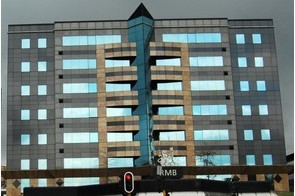Latest News
IMF commends reform at Federal Inland Revenue Service

News Highlight
FIRS said the IMF has been a critical stakeholder in its journey towards tax system reforms targeted at improving domestic revenue mobilisation.
The International Monetary Fund (IMF) has commended the “good work” being done by the Federal Inland Revenue Service (FIRS), Nigeria’s main federal tax revenue agency.
This commendation was provided on Wednesday by a Senior Economist at the Fiscal Affairs Department of the IMF, Paulo Paz, at the opening of the IMF-supported Headquarters Mission at the FIRS headquarters, Revenue House, in Abuja.
Paz said the IMF recognises the “good work that FIRS has been providing to the citizens,” under its chairman, Zacch Adedeji, adding that the Washington, D.C.-based international financier would continue to support the Nigerian agency in delivering effective tax administration for the growth and development of the country.
A statement signed by Dare Adekanmbi, Special Adviser on Media to the FIRS Chairman, said the mission of the IMF team to Nigeria was to explore areas the institution could further support the FIRS in addressing the challenges that might arise, particularly with the recently signed tax laws.
“We want to know how we can best support you with this new challenge,” said Paz. “Our take on the four tax laws is first a recognition of the very good work that FIRS has been providing to the citizens.
“You have at the same time the recognition and new responsibilities with these very powerful laws which will increase the relevance of the tax administration in Nigeria.”
Adedeji acknowledged the support of the IMF for reform by the Nigerian tax authority, specifically the FIRS’ portfolio management and compliance programme, and promised that the relationship would continue when the agency transits to the Nigeria Revenue Service (NRS) next year with wider revenue collection and administration mandates.
“IMF has gone on this journey with us, and I think we are in a good place to continue the journey together,” said Tayo Koleosho, Chief of Staff of the FIRS chair, who represented him in welcoming the IMF team. “We are working together, either in digital transformation, VAT automation, looking at even the compliance programme and ability to automate some of those things.”
In her own remarks, Bolaji Akintola, Coordinating Director, Corporate Services Group, FIRS, explained that the IMF has been a critical stakeholder in FIRS’ journey towards tax system reforms targeted at improving domestic revenue mobilisation. She said the FIRS, with the support of the IMF, conducted two systemic evaluation exercises using the Tax Administration Diagnostic Assessment Tool (TADAT) between 2018 and 2023.
“Each of these exercises was followed by a post-TADAT mission where a reform roadmap was developed to address the systemic weaknesses that were uncovered by the assessment,” said Akintola. “The fact that the results of the 2023 TADAT showed significant improvement on those of 2018 is indicative of the commitment of the Service towards institutional excellence.”
She added: “Let me assure you that if another TADAT is conducted today, the result will be better than that of 2023 because a good number of the weak indicators from the 2023 Performance Assessment Report have been addressed and some have been codified in the four tax reform laws recently signed by President Bola Tinubu.”
Related News
Latest Blogs
- What is most important for Nigeria in 2026
- Restoring asset declaration as a tool of public accountability
- Tackling antibiotic resistance through safer food systems
- Big government, little governance
- What will matter in Nigeria in 2026
Most Popular News
- NDIC pledges support towards financial system stability
- Artificial intelligence can help to reduce youth unemployment in Africa – ...
- Pan-African nonprofit appoints Newman as Advisory and Executive Boards Chair
- UN adopts new consumer product safety principles
- FRC Chairman commends NDIC for prompt remittance of operating surplus
- Dollar slumps as Fed independence comes under fire








